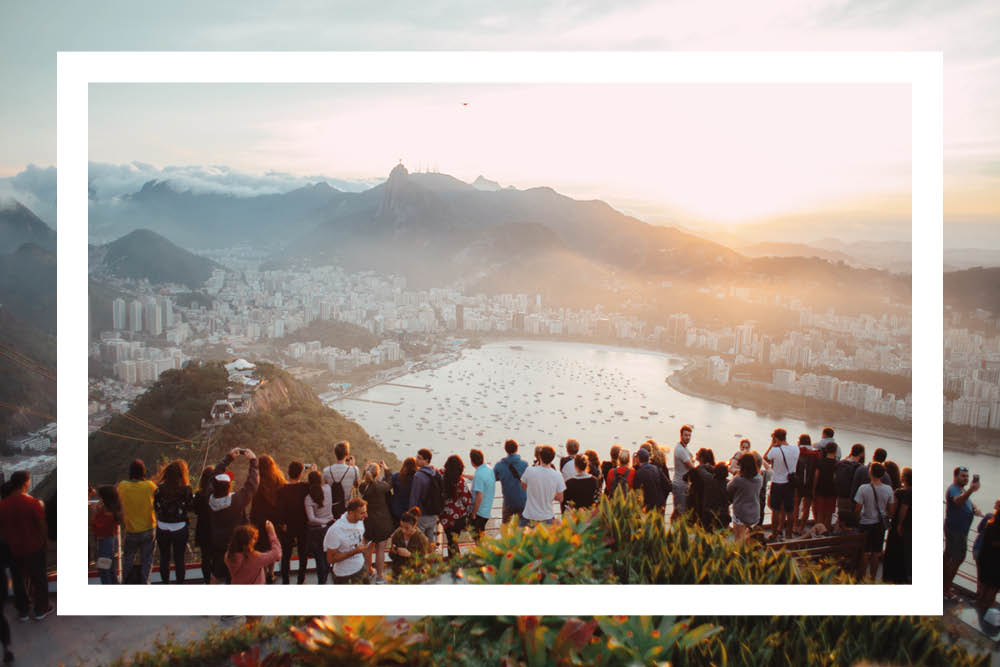The issue of overtourism and how you can make a difference

Overtourism is hardly a new concept to travel, and when people think of crowded, touristy cities, destinations such as Venice and Amsterdam may come to mind. But these are just the spots struggling with throngs of visitors today. A new study conducted by the World Tourism and Travel Council (WTTC) and Jones Lang LaSalle (JLL) analysed 50 cities across the globe and highlighted seven destinations where rapidly increasing tourism could cause serious issues in the next decade.
The study divided cities into categories based on how prepared the city is for tourism growth. It measured cities based on factors such as labour, infrastructure, stability, environment, sustainable tourism growth, tourism management and more. When a city has a poor score for tourism factors and a high score in projected tourism growth, these cities have a higher tourism growth rate than the current resources can handle, meaning that the city is at risk of overtourism.
Cities identified as having growing tourism momentum, increased pressures and inadequate resources for accommodating the boom by as soon as 2027 included Bangkok, Thailand; Vietnam’s Ho Chi Minh City; Jakarta, Indonesia (which is also projected to be the world’s most populous city by 2030); and Mexico City.
This WTTC study comes on the heels of a Responsible Travel report that found 98 destinations in 63 countries struggling with overtourism. While some are not at all surprising, like the Great Wall of China and the Statue of Liberty, there are other places like Tallinn Old Town in Estonia and Darjeeling in India, that are also scrambling to manage the onslaught of visitors.
WHAT’S THE ALTERNATIVE?
Ecotourism (or sustainable tourism) spans a variety of travel topics, from environmental awareness to historical preservation. Essentially, it comes down to the idea that as an eco-tourist, you decide to travel in a way that does not contribute to the destination’s deterioration or the degradation of its local population or wildlife’s quality of life.
SO, HOW CAN YOU REDUCE OVERTOURISM?
DO YOUR RESEARCH
While the threat of overtourism seems to be impacting, well, pretty much every sought-after destination on Earth, the study also found many cities that are successfully handling increased tourism. Cities such as Berlin, Dublin, Madrid, London, Miami and New York City are “mature performers” which, according to the WTTC, means they are some of the cities “in the most favourable and ready position to manage the current levels of growth.”
For travellers who simply prefer less popular destinations, cities including Bogotá, Lima, Cairo, and Moscow have slower tourism growth and lower visitor concentration.
PRESERVE ANCIENT RUINS
Remote regions of the world are continuously becoming increasingly accessible through improved transportation and more connected through the internet and social media. One result of this is unprecedented popularity and crowds at the world’s most famous landmarks and ancient ruin sites.
While you’ll need a set entry time to enter Machu Picchu and may find yourself navigating big bus tour groups in Angkor Wat, there are still plenty of lesser known ruins to appreciate. Most of the iconic ruins were part of large civilizations which also contained nearby sites that get far less attention and far fewer tourists.
RESPECT LOCAL LAWS
Destinations have had to get really creative to manage increased and sometimes untenable tourism. Amsterdam, for example, removed their famous photo-opp sign in December, and both Venice and Rome have been implementing strict regulations and laws aimed at controlling tourists. And then there’s the Faroe Islands, an entire nation that had to close its doors to tourists for a few days for “maintenance.”
The Italian island of Capri is famous for its designer boutiques and celebrity visitors, but — as is the case with Venice, the Cinque Terre and other famous travel destinations — its popularity is leading to problems with overtourism. According to The New York Times, 2.3 million tourists visit Capri annually and the island (home to just 15,000 residents) is struggling to manage all the trash they leave behind.
As a solution, Mayor Gianni De Martino has approved an order banning from the municipality all single-use plastics that aren’t biodegradable as of Wednesday, 1 May 2019. This includes plastic bags, plates, cups, utensils, water bottles, straws and even coffee stirrers. Anyone who violates the order can be fined up to €500. So before you hop on that ferry, be sure to check your bags for prohibited plastics.
Nicky Kelvin is the Director of Content for and face of trusted travel and lifestyle media platform The Points Guy UK. www.thepointsguy.co.uk. TPG UK is the leading online resource for all things points, miles and travel experiences, offering first-hand flight, hotel and airplane reviews, curated travel guides and immersive video content.













